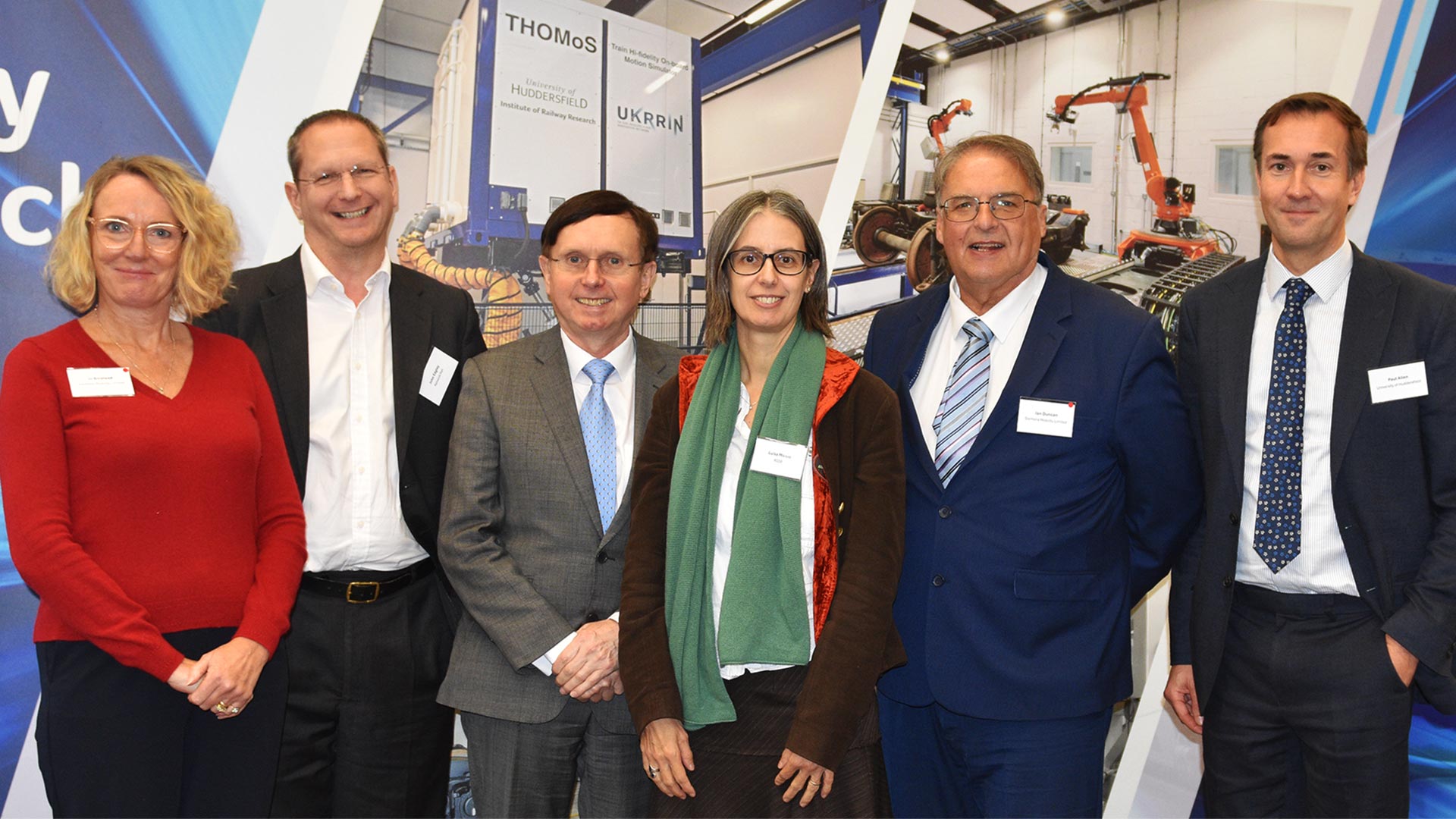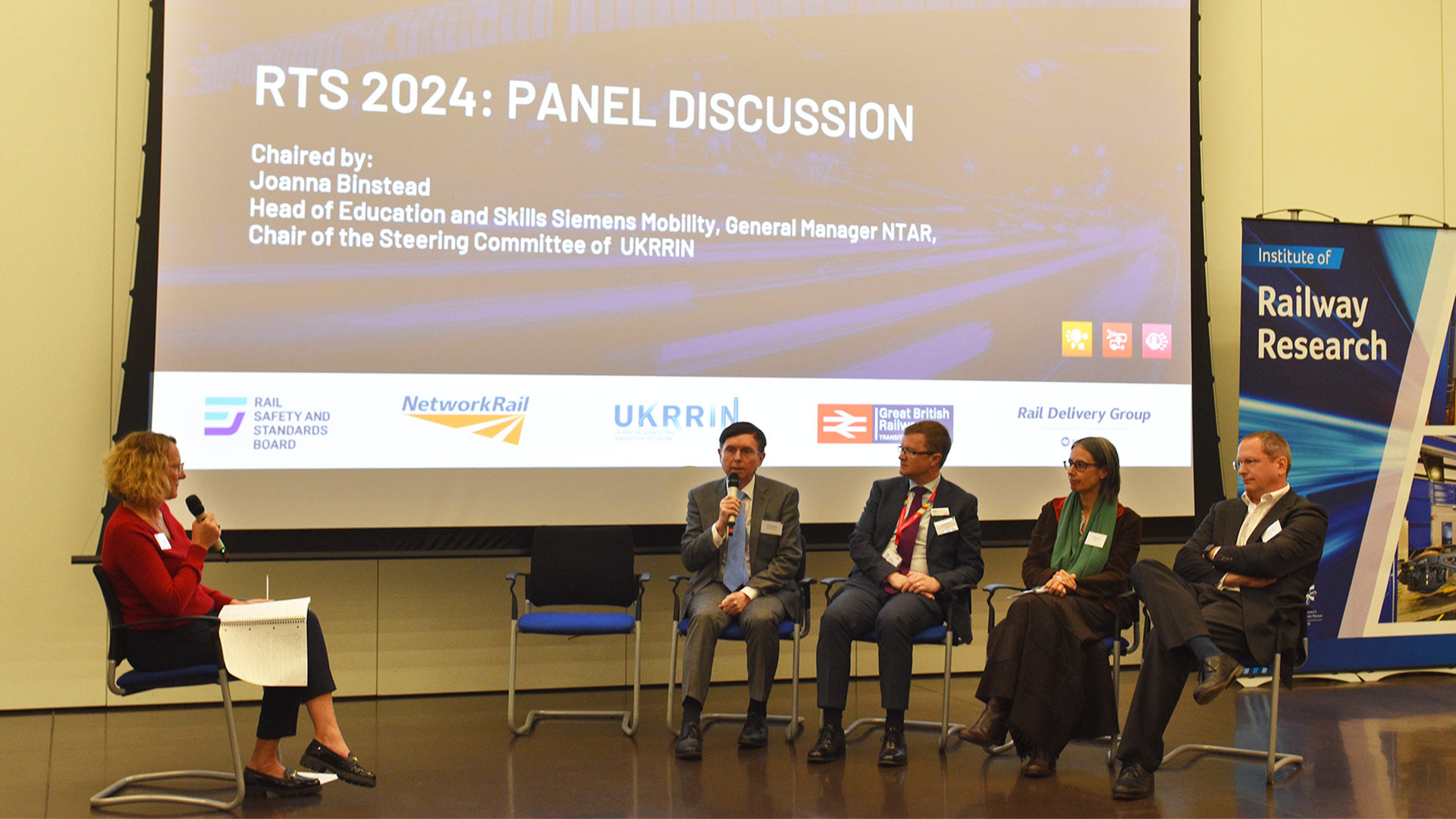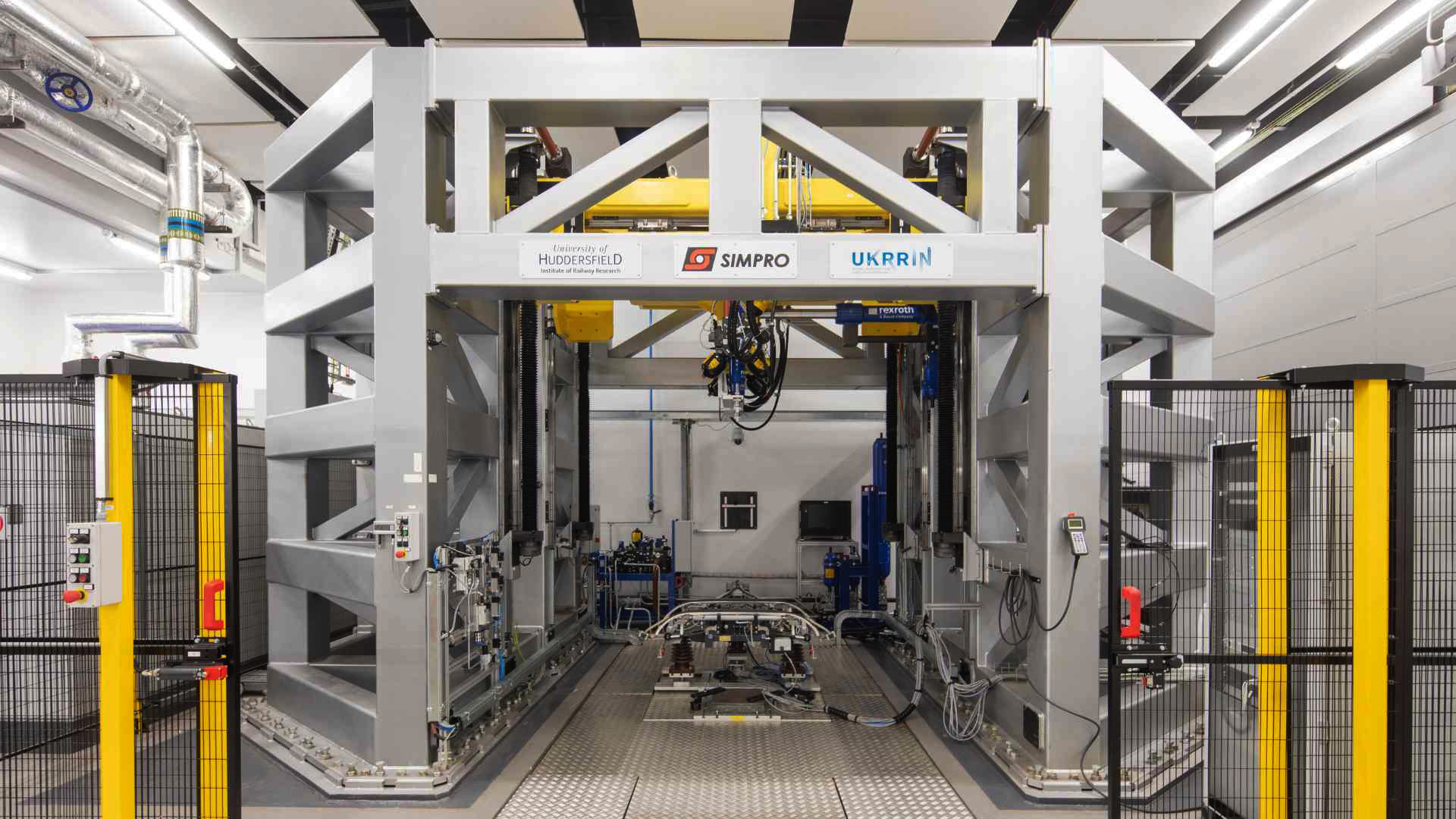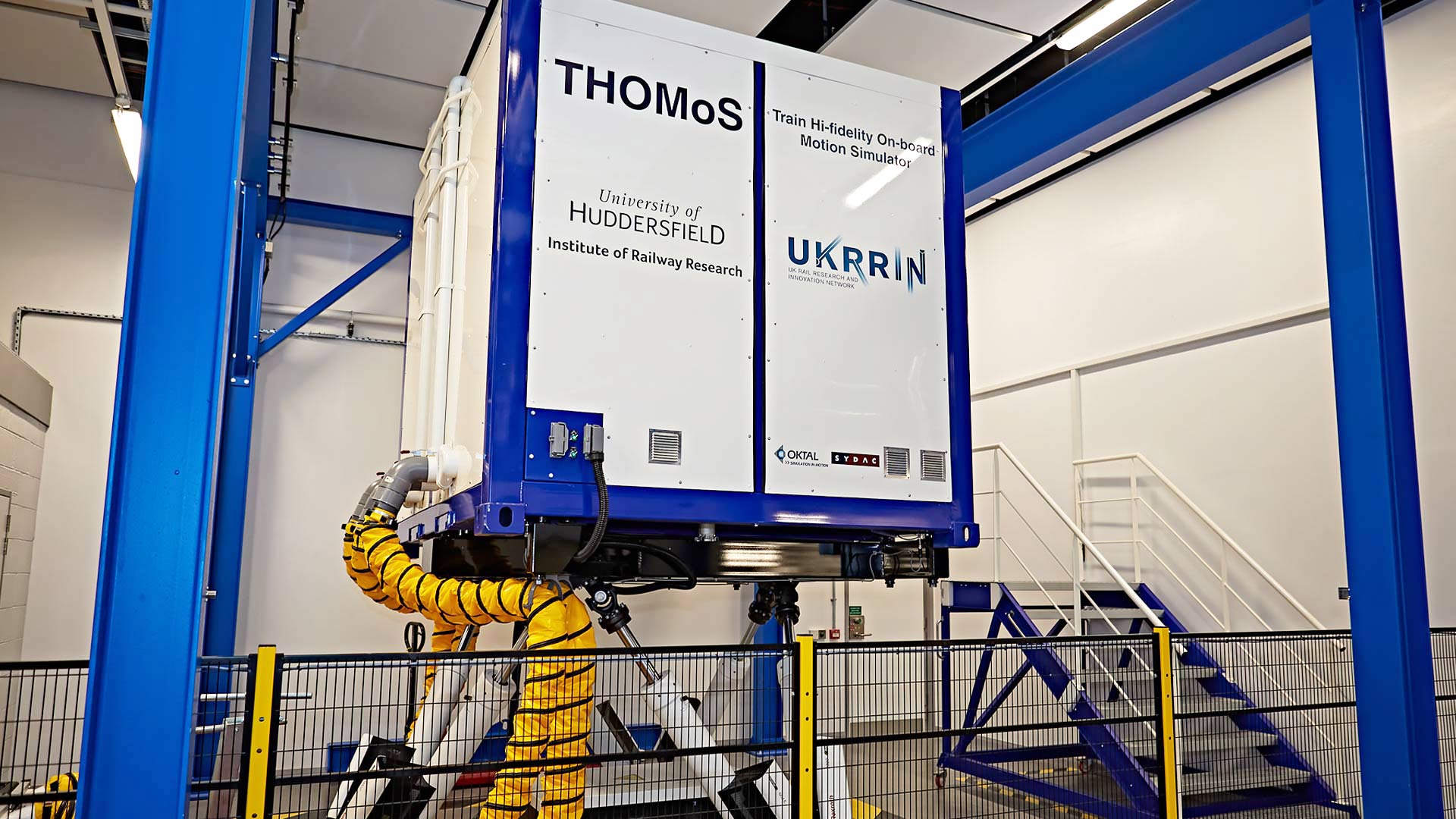Industry leaders head to University’s IRR to discuss key rail network strategies

The University of Huddersfield’s renowned Institute of Railway Research (IRR) has hosted an event bringing industry and academic leaders together to discuss delivering key rail network strategies.
Organised by the UK Rail Research and Innovation Network’s (UKRRIN) Centre of Excellence in Rolling Stock (CERS) and the IRR’s strategic research partner Rail Safety and Standards Board (RSSB), the one-day UKRRIN INSPIRE event was entitled, How can we deliver the Rail Technical Strategy 2024?
Beginning with a tour of the world-class laboratory facilities at the IRR, which has led CERS since the UKRRIN launch in 2018, the INSPIRE event included senior industry leaders, academia as well as a number of high-profile speakers.
These were Abi Hayes, Director of Public Transport and Rail Strategy and Rail Analysis at the Department for Transport; Luisa Moisio, Director of Research at the RSSB; David Horne, Managing Director at LNER; Clive Burrows, Group Engineering Director at First Group; and John Edgley, Chief Track and S&C Engineer at Network Rail.
The Rail Technical Strategy sets out the agreed priorities and objectives for introducing and implementing innovative technologies and solutions across the railway network. The five functional priorities are industry-agreed focus areas where rapid progress is needed, and new technical solutions are critical.
In addition to case studies showcasing research in the areas of low emissions, optimised train operations and efficient and reliable assets, participants at the event heard from industry leaders on the role of the Rail Technical Strategy, its refreshed priorities, and technical progress needed to deliver the railway that customers need.

Professor Paul Allen, Director of the University’s IRR, who opened the event, commented: “The RTS is critical to developing and implementing the technological change required to deliver a safe, efficient and reliable network, driving modal shift and decarbonising our transport system. The day enabled industry and academia to come together to discuss how we can best work together to deliver the benefits of the updated RTS priorities.”
The keynote, delivered by Abi Hayes, highlighted alignment between the RTS and the UK Government’s own integrated 30-year rail strategy, with a focus on rail reform and performance improvement. Abi emphasised a need for a freight-friendly railway that also put passengers first and joined communities. She encouraged academia and industry to challenge the Government’s emerging plans to ensure we deliver the right solutions for the GB railway.
Luisa Moisio, Director of Research at RSSB, commented: “The Rail Technical Strategy outlines practical steps toward the future railway we need to deliver for our customers. Having forward-looking route maps is crucial to embedding the RTS into our research and innovation activities. The UKRRIN community plays a key role in this process; without this collaboration between academia and industry, progress would be slower, less energetic, and less innovative.”
Academics from within the IRR were also heavily involved in the day of workshops and discussions, including Principal Industrial Researcher Julian Stow, Professor of Railway Technology João Pombo, Senior Research Fellow Sam Hawksbee and Principal Industrial Fellow Phil Shackleton.
They respectively described their collaborative research in automated driver competency indicators, next-generation vehicle pantographs using Formula One-derived Inerter technologies, carbon fibre railway axles and the application of data analytics for detecting potentially dangerous uneven loading of in-service freight wagons.
UKRRIN is a collaboration between academia and industry, working together to revolutionise innovation in rail. Its Centre of Excellence in Rolling Stock provides world-class research to meet the innovation demands of the rail industry to support the next generation of railway vehicles.
Awarded the Queen’s Anniversary Prize for research and development that has brought significant improvements to the railway industry, the IRR is a world-class centre for railway engineering research and innovation.
With a team of 35 dedicated academic research staff who specialise in the modelling, simulation and full-scale testing of critical railway systems, the IRR has invested over £14m in state-of-the-art full-scale test facilities.
These include HAROLD - a full-size bogie rolling test rig; THOMoS - a high-fidelity passenger motion simulator; PANTHER - a high-speed pantograph test rig, and its advanced smart rolling stock maintenance robotics facility.
The IRR works closely with industry and academic partners to deliver impactful research for a safer, more reliable and cost-efficient low carbon railway.
The event took place at the IRR and the University’s Oastler Building on 15 October 2024.

